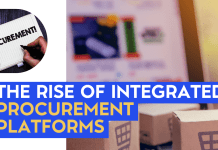Shamayne Harris, head of procurement at Pagabo, explains that the evaluation of supplier bids for framework appointments must be thorough and sophisticated, just as much as the contract tender evaluations that follow
As competition for a place on public sector frameworks becomes stiffer, bid evaluation can and must be scrutinised, especially where public funds are involved.
Recently, a report by MPs urged departments to ensure more ‘robust’ competition for contracts, following £269bn spent on public procurement in 2021-22. Responsibility lies with clients, but equally with framework providers, which place focus on compliance as well as value.
As frameworks procured under the Public Procurement Regulations typically run for a period of up to four years, there is regular opportunity to improve new versions of the same framework or use learnings to make new framework agreements better.
This means any provider should – as we do at Pagabo – constantly examine and develop documentation, making sure frequently asked questions are captured for clarity and to aid improvements in future bidding.
This in turn reduces complexity and ensures bidders can focus on including the details that matter most. Despite framework providers being legally bound to comply with the regulations they procure under, feedback on bids can be hugely varied across the industry and the importance of this information can sadly be overlooked.
A framework provider should pride itself on providing thorough feedback so that all bidders feel they’re able to easily identify how the results of their bid were reached and trust the integrity of the procurement process, its outcome and its commitment to a fair, transparent and objective evaluation.
This commitment to feedback is further strengthened in the Procurement Reform Act scheduled to be implemented in October 2024, which rebrands the feedback as ‘assessment summaries’.
Building relationships with suppliers is crucial
Anyone who works to produce a bid for a framework opportunity will know how time-consuming and repetitive they can be. Professionals in this area of business will spend hours looking at similar opportunities and applying the same information.
So, who better is there for framework professionals to work alongside to improve industry processes, than those that have to follow them.
Framework providers need to take the time to work with suppliers and make use of lessons learned. In our own experience, this commitment has led to improved and refined tender packages.
Consolidating our standard documentation and return templates has led to a significant reduction in missing information and, even more importantly, reduces the evaluation time by reducing the volumes of tender queries being issued during evaluation.
This allows us to share the outcome of the evaluation much sooner and increases the success rate of bidding organisations by reducing the risk of failure due to human error.
A more rounded approach to bid evaluations has proven more efficient
Our nine-step bid evaluation process had a dedicated procurement lead assigned to each stage. These stages include financial assessment, case study and quality evaluations, and the consolidation of results to arrive at the award recommendation. This methodology allows us to progress through evaluations quickly by completing key stages in parallel to one another.
The same need for planning applies to bid teams too, but framework providers can support with this. Framework providers should be clear in their requirements and evaluation methodologies to allow potential bidders to determine whether the opportunity is suitable for them – which is part of our ethical procurement checklist through the commitment to having fair, open and transparent business practices.
We estimate approximately 60% of preparation for a framework bid can be completed in advance, so we’re working on resources to support suppliers in truly understanding this and hopefully seeing continued improvement in the efficiency of the bid process.
Bidding for framework opportunities should be accessible and transparent, and allow the opportunity to plan resource by preparing in advance.
These are all motivations of ours so that procurement can simply support clients as and when needed.














